
Political identity came to the territory now occupied by the Principality of Liechtenstein in 814, with the formation of the subcountry of Lower Rhætia. Liechtenstein's borders have remained unchanged since 1434, when the Rhine established the border between the Holy Roman Empire and the Swiss cantons.
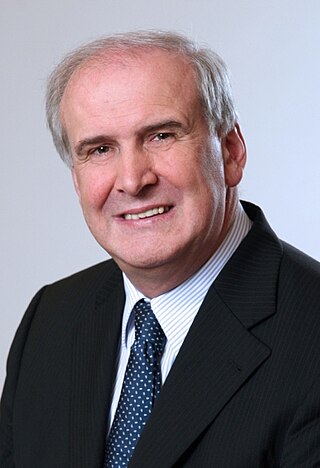
Otmar Hasler is a politician from Liechtenstein who served as the Prime Minister of Liechtenstein from 2001 to 2009. He was previously the President of the Landtag of Liechtenstein in 1995.
Mario K. Frick is a lawyer and politican from Liechtenstein who served as the Prime Minister of Liechtenstein from 1993 to 2001.

Alexander Frick was a political figure from Liechtenstein who served as Prime Minister of Liechtenstein from 1945 to 1962.

Walter Kieber was a lawyer and politician from Liechtenstein who served as Prime Minister of Liechtenstein from 1974 to 1978.

Alfred J. Hilbe was a politician from Liechtenstein who served as Prime Minister of Liechtenstein from 1970 to 1974. He previously served as deputy prime minister from 1965 to 1970.
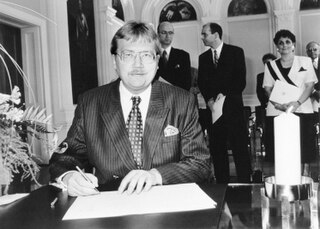
Markus Büchel was a lawyer and politician from Liechtenstein who served as the Prime Minister of Liechtenstein in 1993. Serving for just under 7 months, he is the shortest serving prime minister in Liechtenstein's history.

Gustav Schädler was a teacher and politician from Liechtenstein who served as Prime Minister of Liechtenstein from 1922 to 1928.
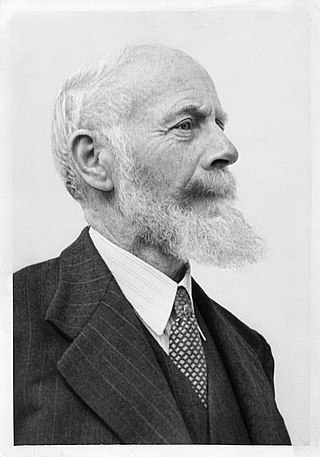
Josef Ospelt was a political figure from Liechtenstein who served as the first Prime Minister of Liechtenstein from 1921 to 1922.
The Christian-Social People's Party, often shortened to People's Party, was a social liberal political party in Liechtenstein. Founded in 1918, the Christian-Social People's Party and the Progressive Citizens' Party (FBP) were the first political parties in Liechtenstein.
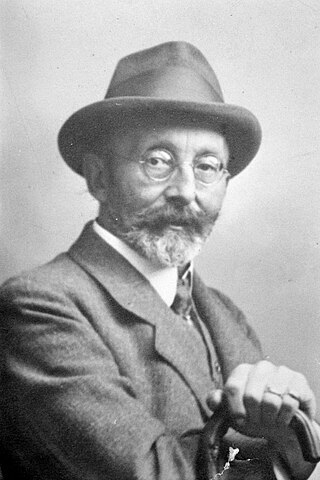
Josef Peer was an Austrian lawyer and politician who served as the Governor of Liechtenstein from 1920 to 1921.

The Josef Ospelt cabinet was the governing body of Liechtenstein from 23 March 1921 to 27 April 1922. It was appointed by Johann II and was chaired by Josef Ospelt.

The 1992 Liechtenstein constitutional crisis culminated on 28 October 1992 when Hans-Adam II called for a referendum regarding Liechtenstein's accession to the European Economic Area to be held before the corresponding referendum in Switzerland, against the countries' custom union and the wishes of the government and the Landtag of Liechtenstein.
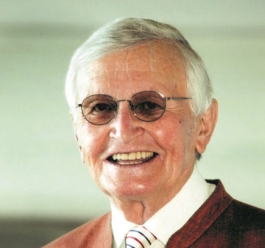
Hilmar Ospelt was a political figure from Liechtenstein who served as the Deputy Prime Minister of Liechtenstein from 1980 to 1986.

The Walter Kieber cabinet was the governing body of Liechtenstein from 27 March 1974 to 26 April 1978. It was appointed by Franz Joseph II and chaired by Walter Kieber.

The First Hans Brunhart cabinet was the governing body of Liechtenstein from 26 April 1978 to 7 April 1982. It was appointed by Franz Joseph II and chaired by Hans Brunhart.

The Third Hans Brunhart cabinet was the governing body of Liechtenstein from 30 April 1986 to 5 June 1989. It was appointed by Hans-Adam on behalf of Franz Joseph II and chaired by Hans Brunhart.

The Fourth Hans Brunhart cabinet was the governing body of Liechtenstein from 5 June 1989 to 26 March 1993. It was appointed by Hans-Adam II and was chaired by Hans Brunhart.

The Markus Büchel Brunhart cabinet was the governing body of Liechtenstein from 26 March to 15 December 1993. It was appointed by Hans-Adam II and was chaired by Markus Büchel.















